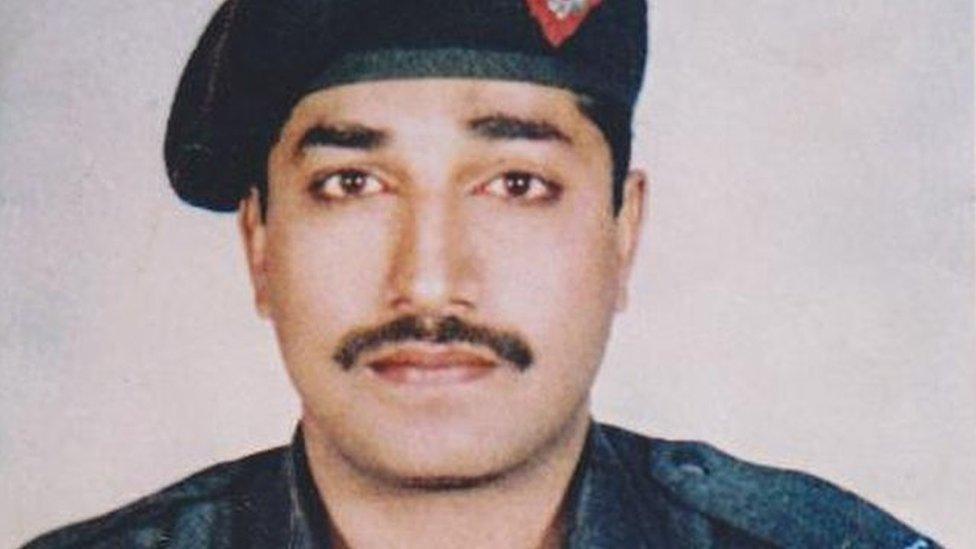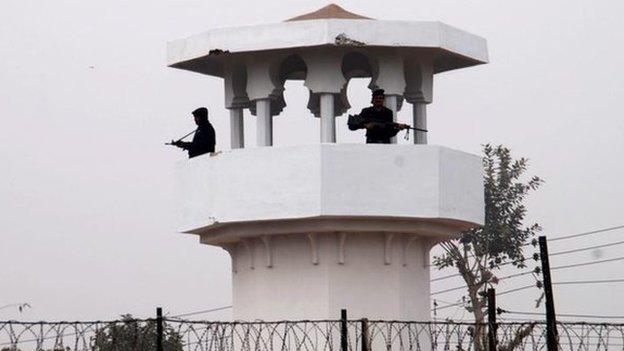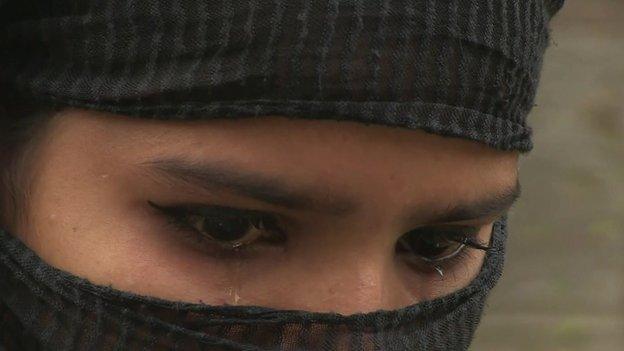Pakistan court stays mentally ill man's execution
- Published

A medical board found Khizar Hayat suffered from psychosis and schizophrenia
A court in Pakistan has stayed the execution of a schizophrenic man who was due to be hanged next week, a rights group says.
Former police officer Khizar Hayat, 55, was sentenced to death in 2003 for killing a fellow police officer.
But the Lahore High Court has now asked the government to provide a new report on his health by 30 January.
Hayat's mother, Iqbal Bano, told the Associated Press her son "needs medical treatment, not execution".
The Justice Project Pakistan (JPP) rights group said that the court decided to wait for a ruling in the case of another death row prisoner with schizophrenia, Imdad Ali.
The Supreme Court stayed Ali's execution last year and appointed a board to evaluate his mental fitness to be executed. It is not clear when a decision will be made on his fate.
According to the JPP, a court-ordered assessment in May 2016 concluded that Khizar suffered from psychosis and schizophrenia.
Since his sentencing, he had faced several attacks by inmates because of his mental health and had been in solitary confinement since 2012, it said.
Pakistan is a signatory to international covenants interpreted as banning the execution of those with mental illnesses.
JPP spokesman Wassam Waheed said Khizar's case demonstrated "the complete lack of safeguards for mentally ill prisoners".
"Until the Supreme Court sets the standard for the way the law handles them, we will continue to litter our death row with many Imdads and Khizars," he said.
Execution surge
Pakistan lifted a seven-year moratorium on executions in December 2014 after a deadly Taliban attack on a school in Peshawar in what it said was a response to terrorism.
Since then, 421 people have been hanged, most for offences unrelated to terrorism, rights group Reprieve says, external.
A total of 326 people were hanged in Pakistan in 2015, according to figures from Amnesty International, external, putting Pakistan behind only Iran and likely China (which does not confirm the number of executions). However, the pace of executions slowed in 2016.
Waseem Ahmad Shah, Dawn newspaper's legal affairs correspondent in Peshawar, told the BBC the initial surge was because many cases had completed the appeals process during the moratorium and were pending.
But in the rush to carry out executions, errors were made - including in the case of two men hanged while their appeals were pending, who were posthumously acquitted by the Supreme Court.
As a result, officials were proceeding more cautiously and the number of cases that had completed all the appellate stages had fallen, he said.
- Published16 December 2015

- Published10 March 2015

- Published4 February 2015
